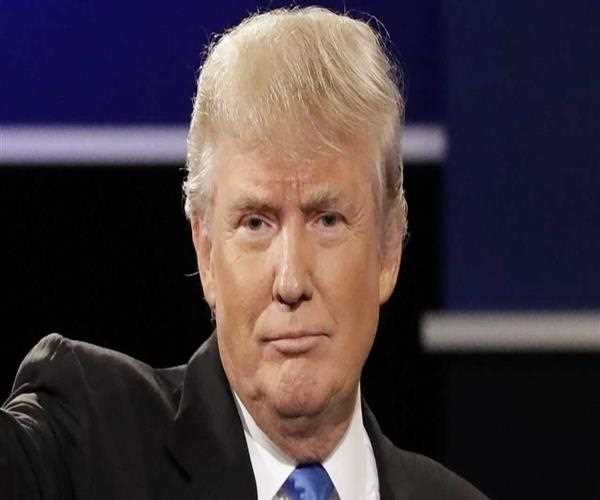President Donald Trump on Wednesday featured what he called the risks postured by unlawful settlers in front of an imperative House vote on two bills went for getting serious about the individuals who carry out violations and urban communities that decline to help extradite them.

Showing up with families that were defrauded by outsiders, Trump approached legislators to "respect lamenting American families" by sending the "lifesaving measures" to his work area rapidly. The House activity denotes the main major administrative trial of harder migration laws under Trump, who has attempted to force clearing official requests to restrict movement and increase implementation.
"You lost the general population that you adore on the grounds that our administration declined to implement our country's movement laws," Trump told the families in the Cabinet Room. "For a considerable length of time, the savants, columnists, legislators in Washington declined to hear your voices yet on Election Day 2016 your voices were heard the whole way across the whole world. Nobody passed on futile I can disclose to you that."
The president's emphasis on migration, multi-day after Republican pioneers in the Senate put off endeavors to nullify the Affordable Care Act, showed the White House's excitement to get back onto open to balance. Trump has reliably utilized solid talk to paint migrants - both those in the nation unlawfully and some who touch base through legitimate channels - as conceivably unsafe.
"The president's association has brought the pace of this up, and we're doing it this week since he needs it to happen," said Rep. Steve King, R-Iowa, a furious supporter for strict movement laws who co-supported the bills set to be passed Thursday. "The individuals are prepared for it, as well."
The House votes - coming a half year into Trump's administration - are likewise featuring the points of confinement of congressional activity and the dissatisfactions of moderates who anticipated considerably more would have been done as of now.
Trump's official activities have had restricted achievement. His movement restriction on outcasts and outsiders from a few dominant part Muslim nations was held up in government court until the point when the Supreme Court decided for the current week that a portion of the arrangements could be ordered while the Justices get ready for a hearing on the boycott in the fall.
In any case, on the authoritative front, there has been little movement. Trump had recommended in February that he would be available to a thorough movement change charge that evaded presidents George W. Shrub and Obama, however picking up the purchase in from Democrats, and even some direct Republicans, is viewed as far-fetched except if Trump will bargain by enabling numerous unapproved foreigners to increase lawful status.
The House bills, by differentiating, intend to sanction harder implementation approaches. One bill is known as "Kate's Law" is named after Kate Steinle, the 32-year-old lady who was shot and killed in 2015 by an illicit worker who had been ousted five times. The bill upgrades punishments for indicted and extradited crooks who reappear the United States wrongfully.
The other bill called the No Sanctuary for Criminals Act would banish some government gifts from supposed "asylum urban areas" that don't collaborate with elected movement requirement experts and permit casualties of wrongdoings carried out by unlawful migrants to sue those urban areas.
"This is tied in with securing reputable residents and getting crooks off of our roads, plain and basic," House Speaker Paul Ryan, R-Wis., said Tuesday.
Rep. Dave Brat, R-Va., who beat the sitting House lion's share pioneer in a 2014 GOP essential subsequent to battling on migration, said pioneers were more intrigued by "two or three the name-mark informing pieces" than pushing for a more intensive bill.